“it’s demarcating what fits into a specific idea of rap” – Iceboy Violet
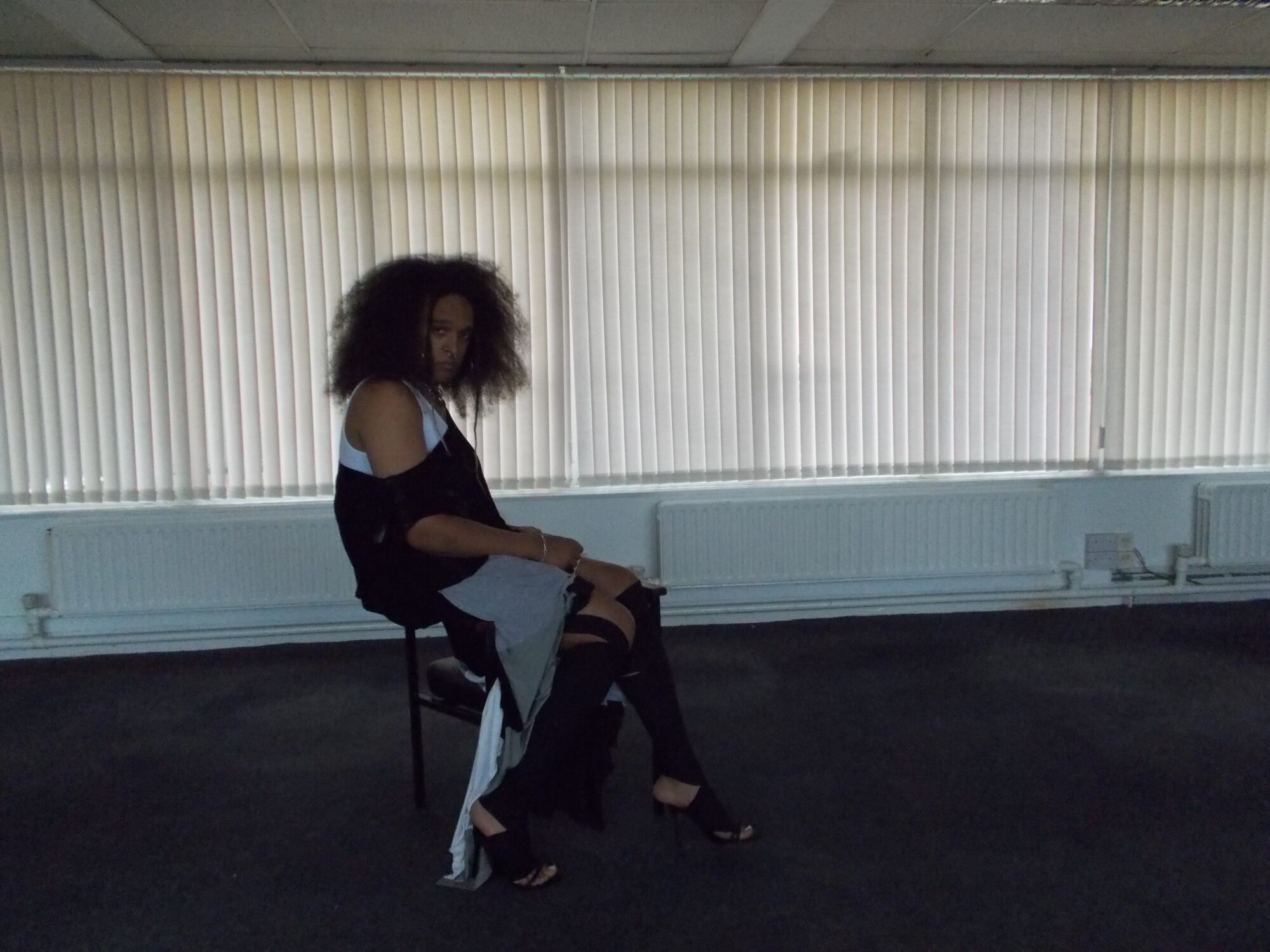
How do you work with samples? Your soundscapes feel like the selected samples carry a lot of personal meaning and referentiality.
Honestly, at this point, the stuff that people get to hear is made of the samples that mean the most to me. The more you enjoy a song, the more you can take out of it when you sample it. That being said, I still sample a lot of stuff I had never heard before. There are only so many songs in the world that are important to me, especially since I listen to a lot of contemporary music, which I find very hard to sample. With the “Drowned to Float” Project, I did sample contemporary things because they meant a lot to me. I was listening to the original songs at the time, but I still find it kind of hard to sample super contemporary in a way that makes sense because the way I sample isn’t super destructive. There’s a lot of sampling of archive.org or of YouTube happening in my productions, weird stuff that I find. The sounds that really hit are the things that touch you when you find them, when you go: wow, what is this? Then you want to do it justice, make something beautiful.
“we have been created by the internet”
You also have a sampling approach to your lyrics, right?
Yeah. I have a hard time with starting lyrics, so often that will be the jumping-off point when I read something beautiful in literature or theory. Or you hear it, people say things: people say beautiful things when they are not so aware of what they are saying. That’s typically the core of lyrics — writing the little bits down. The lyrics feel a bit more like an archive because I don’t go looking for them, it happens in my day-to-day life. If you knew what everything was referencing, you could draw a map of what I care about, so there is more sampling here than in the music. And the references are never about ownership. I haven’t come across many people sampling my work for unofficial remixes or whatever. But we have been created by the internet, by all this information fed into me. That information is just as part of me as anything else. It’s a way of making music that makes sense, I think of it as taking information, looking at something, taking inspiration. Like fashion designers look at fabric. Zooming in on building blocks, a lot of it is like homage. You made this really beautiful song and in this song there’s these three really beautiful seconds, if I loop that over and over people, you can see this texture.
Fabric is such a nice metaphor for this.
I don’t keep on top of fashion like I used to. Fashion is visual and obviously quite iterative. Seasons react to previous seasons constantly. It reacts, and reacts, and splinters off. With music, it doesn’t necessarily feel so obvious because music is much quicker and faster, iteration happens in such small increments.
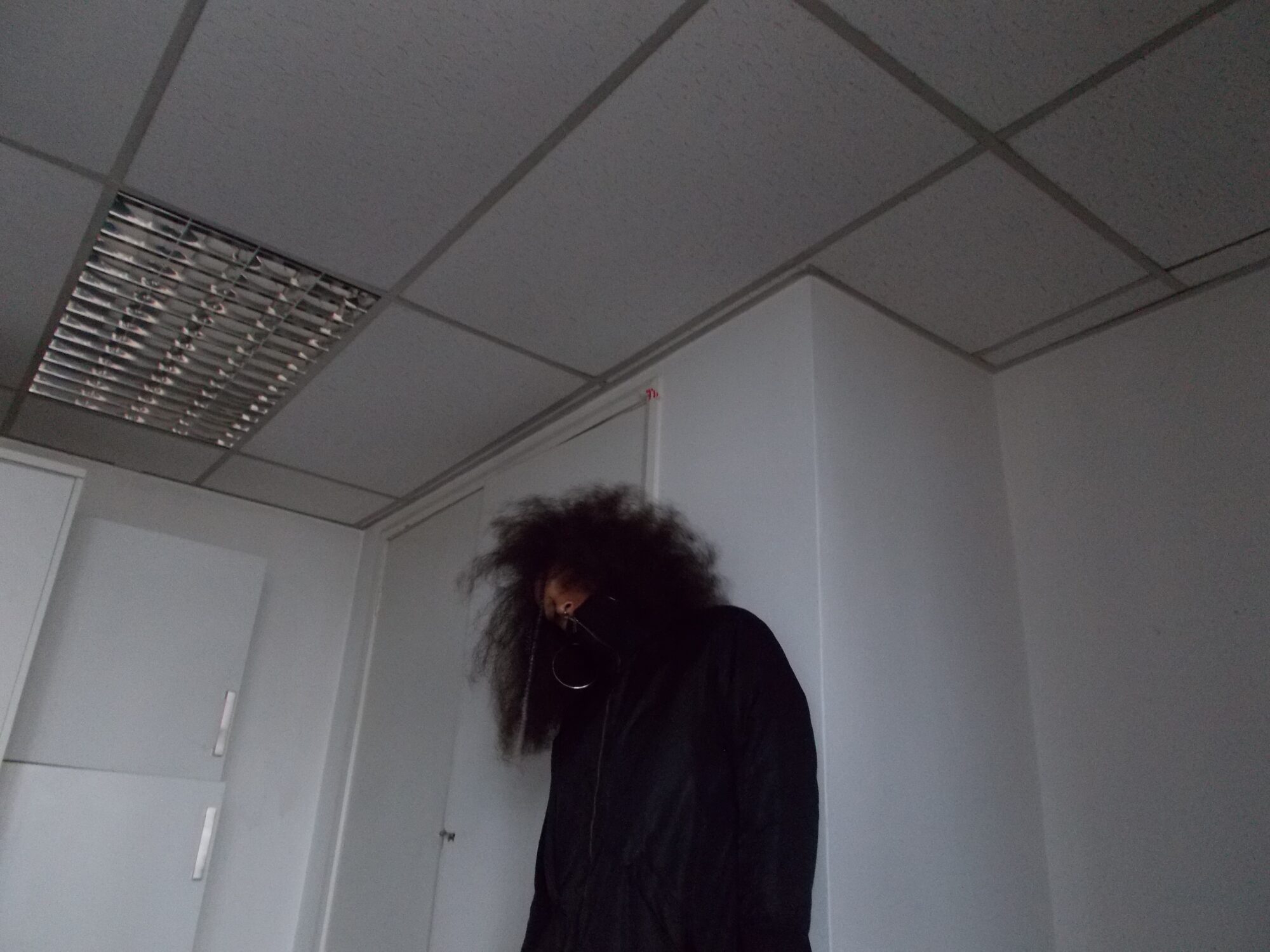
“that kind of secret history”
Many approaches to sampling are also, to use your word, “destructive”, maybe these vectors are not so easily traceable.
It’s all on YouTube or somewhere like that, but I still aim for obscure things. I don’t really do a lot of Synth-work, but I like listening to Synth music from others. Finding stuff that’s inherently weird helps me make other stuff that’s weird. I know that there are people who go, ‘You can’t tell where my samples are from, so it’s good. I am free of criticism for stealing’. Ultimately, the skill of sampling isn’t to make something into something else but to distil the reason that the sample spoke to you. Heighten that so that other people can feel it stronger. I’ve been sampling a lot of Industrial, coming across stuff from my hometown from the 80s. When I listened to this old Industrial, stuff compared to all that club music that we were listening to five to ten years ago – which was really different and creative – I thought we are just doing this but with better computers. A lot of good ideas, a lot of people making really cool bad music. Music that really sucks, but they are trying to do something. I’ve been really enjoying that kind of secret history, because it feels just as important to electronic or club music today as the stuff that everyone remembers, like jungle, dub, garage or whatever. A self-education process.
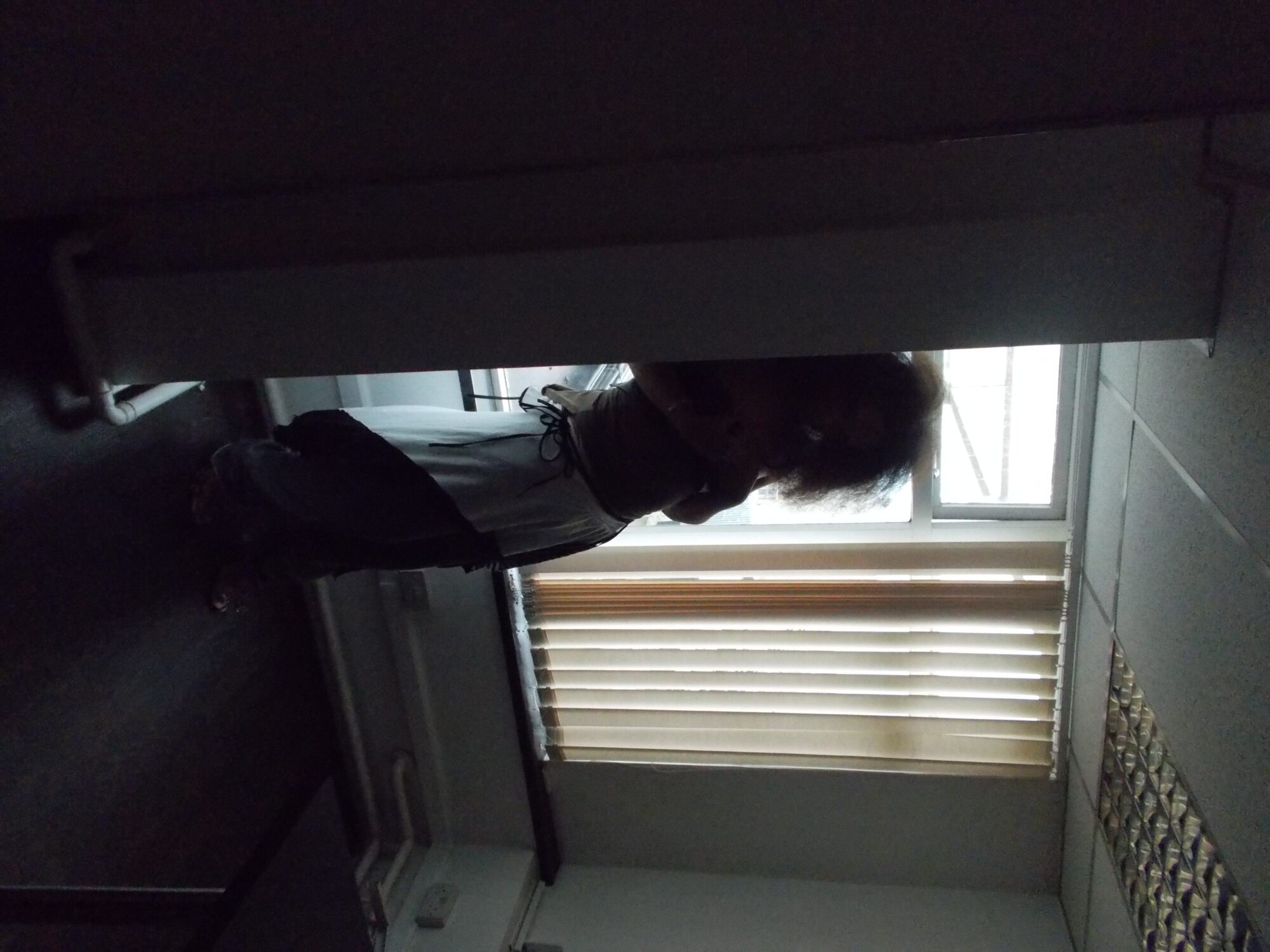
Your previous show in Vienna at Wiener Festwochen was so impressive despite an audience of only 10 people. Yet you delivered such a corporeal and vulnerable performance. What is your relationship to performing live?
It’s definitely different from making music. The way that I make music is very slow, deliberate, and conscious, while the way I perform is very reactive and unconscious, just being in the space. I don’t plan it at all. From the start I had the benefit of playing live quite a lot because the venues in Manchester needed weird support acts. I was a very easy person to fit into an alternative rap slot, or a noisy slot. I had the benefit of practicing on stage and learning. The things I do on stage are a mix of what I feel in the moment and what I have been able to practice on stage. It really depends on the audience and the space. When I played in Spain I jumped on the bar and performed from up there, which was the first time I had done that, which went really well. At my last gig in Switzerland there was a group in the crowd who didn’t care, they were talking the whole set. So, I performed directly in front of them in a confrontational way – either get them to shut up or go away. It depends on everything, it’s all very reactive. That show in Austria you mentioned was very frustrating, with people not coming. Regardless, I always do my best, I always put on a show.
It was clearly frustrating, but you didn’t throw that energy away, you integrated it into the set.
Anger and frustration are actually the emotions that are easy to integrate into a set, I end up with a lot of shouting. When it’s going well, emotions like excitement are easy to process as well. What’s difficult to process are the things in the middle: boredom, apathy, not wanting to be there or feeling that the crowd doesn’t care either way. Or that the crowd finds it entertaining in a way that isn’t funny. It’s so much easier if the show is going really, really well or really, really badly.
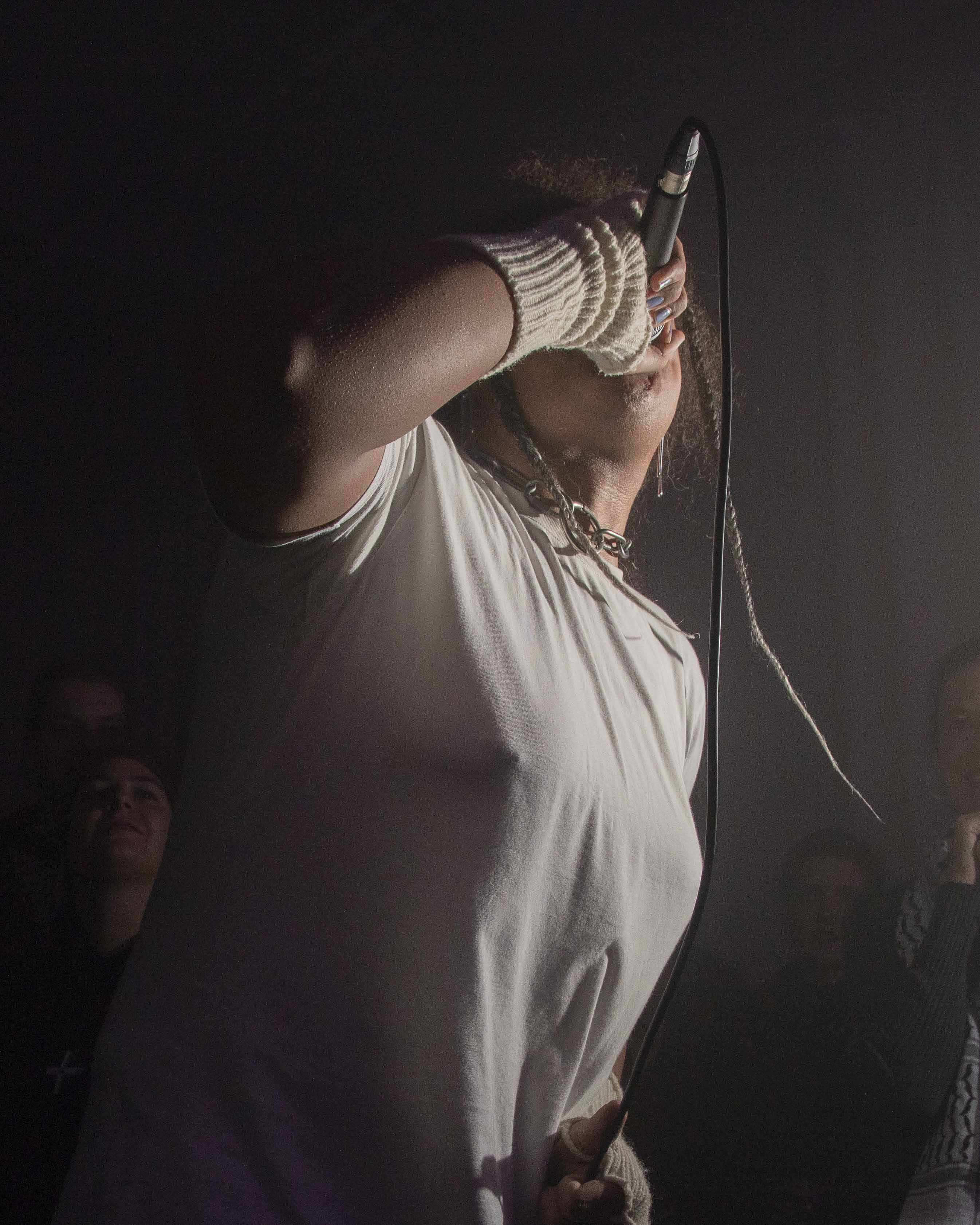
Iceboy Violet at Unsafe+Sounds 2024 (c) Phillipe Gerlach
“it’s demarcating what fits into a specific idea of rap”
A lot of the vocal performances of UK acts playing a lot of international shows, many of whom you’ve collaborated with, are often described using the term “Spoken Word”. I heard previously that you are not happy with that word…
It’s good to clarify these things. I feel like there’s an element of… I feel like it’s racist. In a way that liberal arts people can be racist. Partially, it’s demarcating what fits into a specific idea of rap. From a thematic perspective, or maybe it’s trying to say that something is too literary to be rap… which is really shit. Rap has always been literary, there has always been abstraction and storytelling built into it. Maybe I’ve been particularly abstract, but I wouldn’t be doing any of this if I didn’t listen to rap music. The sense of rhythm, the place of rhyme, the tonality is all really important. My music is just rap music. I don’t feel like my music is that weird, honestly, but then, I do listen to other weird rappers. Especially when you get to mixing electronic music with rap, like jungle or grime MCs, stuff that is specifically for dancing to, it just has a different quality. It’s like when English teachers say, ‘Rap is just poetry’. Yeah… but it’s also not, in so many ways, it’s never a clean translation. Maybe there’s an element of people trying to be complimentary: “This isn’t just rap.” But it is. And the people I take inspiration from are rappers, the people I am competing with are rappers, and the people I send my beats to… It’s all rap. I wonder how much Moor Mother gets things like that, because she’s way more abstract than me, but she’s rapping.
I am always curious about why people say it. It feels like a fundamental misunderstanding of either what my work is or what rap is. Rap is definitely poetic, and it does a lot of the same things, but the more I learn about poetry the more I learn how its conventions are different. I guess there’s a thing with poetry that when you write it, the idea is that when you read it, the poets message gets internalised in your own voice as you read it. It doesn’t matter whether you read it aloud or whether you read it yourself. There’s a certain amount of self-identification at that moment, which with rap music there isn’t. The person who has written it is performing it for you, so if there is identification, but you are identifying across. It’s being given to you; you hear it before you read it.
I listen to a lot of Billy Woods who will have songs that don’t have beats – I think that’s a big part, people will just say, ‘if it doesn’t have beats, it’s not rap’. Some of Billy Woods’ songs really blur the line between spoken word and rap, but there is something intangibly rap in the construction of it, written with rhythm and performance in mind. That’s an interesting thing to look at for this discussion, he’s doing very poetic rap on top of an ambient soundscape. You can play it two different people, one will think it’s Spoken Word one will think it’s rap and they both can be kinda right, that’s where you need to go to examine this distinction.

“there’s a simple pleasure to dreaming, to having delusions”
In the liner notes for “Not a Dream but a controlled Explosion” you talk about desire and fantasy and how they relate to dreams. You talk about how they are prefigurative tools, but then you also speak about the fake. I took away how the fake dream or the fake myth is something subjugating? Like the dream of the underground solo artist, the dream of masculinity. Then you can have counter dreams, so to say?
I think what’s interesting about the concept is that I knew more what I was getting at, at the start of the whole thing, and ended up obscuring it for myself in the process. On one hand there’s a simple pleasure to dreaming, to having delusions. I had tied it into the whole delulu thing. People have been using that word as a description for the positive lies they tell themselves to maintain themselves in this word, that’s the kind of thing I was talking about. “I am delulu” – it’s an awareness of the stories we tell ourselves to maintain. What I wanted to get at was that the fake is as real as we want it to be and the real is often incredibly fake. We see that in the way science is used to prop up systems of power. It happened with black people; science says they’re animals. It happened with gay people, and trans people. The science says they shouldn’t have rights, science precedes and follows politics and then it turns out what was very real was fake all along. What’s fake in our senses of masculinity or blackness, all these social codes and restrictions. It’s only as real as we continue to prop it up.
Part of it was trying to celebrate and give power to those small fantasies that we have. And then acknowledge that they’re there, because I have them, like weird fantasies of masculinity that I haven’t been able to shed. Acknowledging how those are there and how they make up the very real bits of me, how they make up how I think about success or identity. I can create other fantasies by talking a certain way, evading certain expectations, and taking shots at shared fantasies. The better way to explain it was that the whole thing was an exploration of the power of desire and collective thinking and just how embedded it is. It’s a huge topic, and I finished the album and thought, I could write about this so much more. I did a broad overview of what I am thinking about and maybe one day, when I am in the right place to write about it, I’ll make another one. We can only act on what we think is the truth anyway.
Thank you for your time.
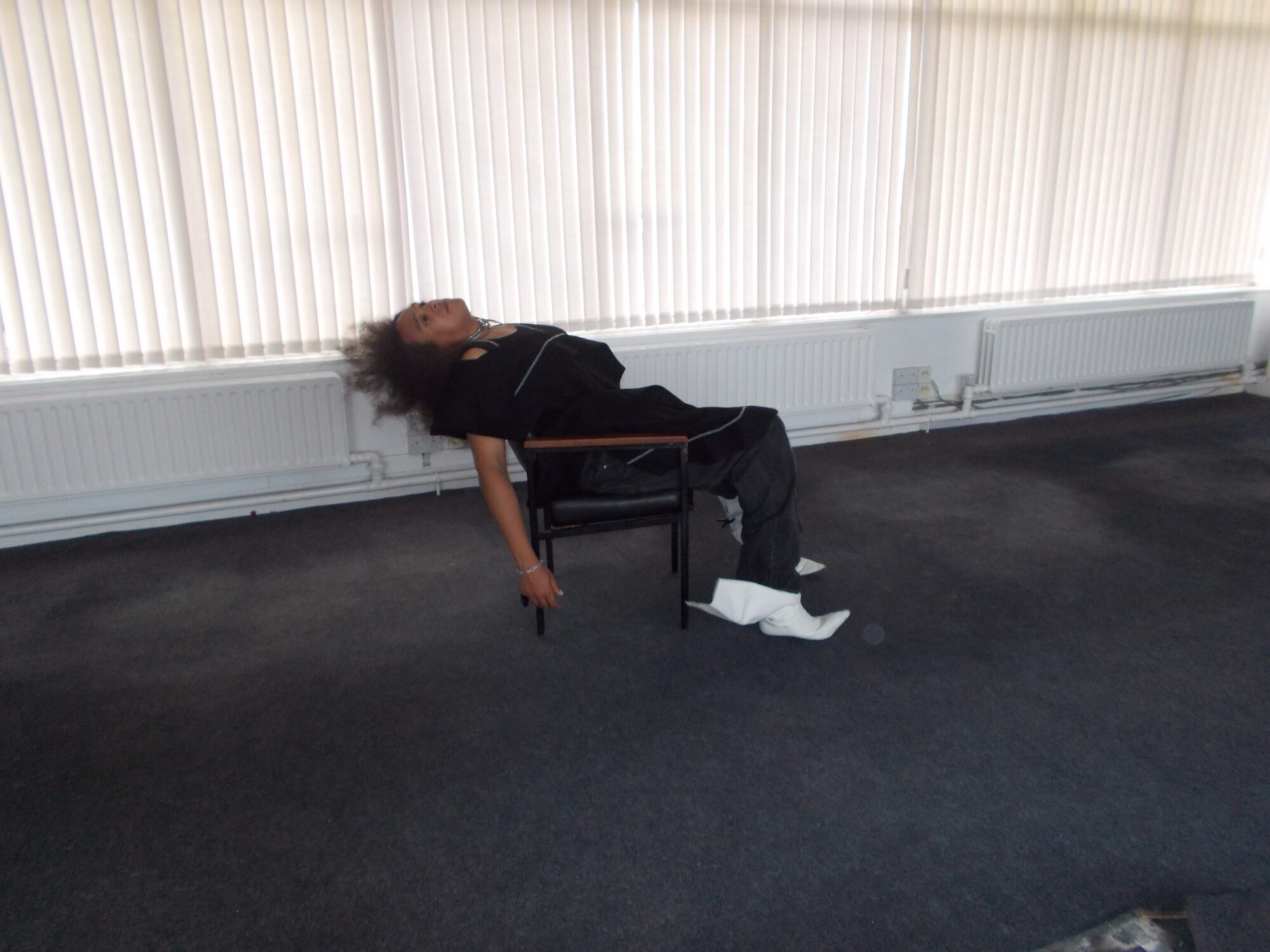

This article is brought to you by Struma+Iodine as part of the EM GUIDE project – an initiative dedicated to empowering independent music magazines and strengthening the underground music scene in Europe. Read more about the project at emgui.de.
Funded by the European Union. Views and opinions expressed are, however, those of the author(s) only and do not necessarily reflect those of the European Union (EU) or the European Education and Culture Executive Agency (EACEA). Neither the EU nor EACEA can be held responsible for them.

Iceboy Violet